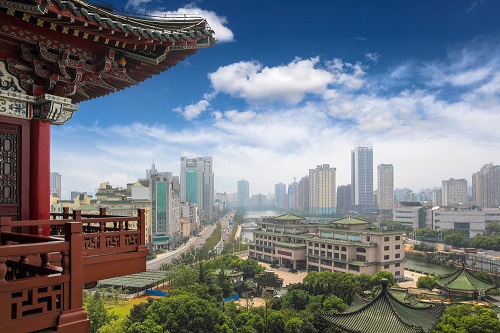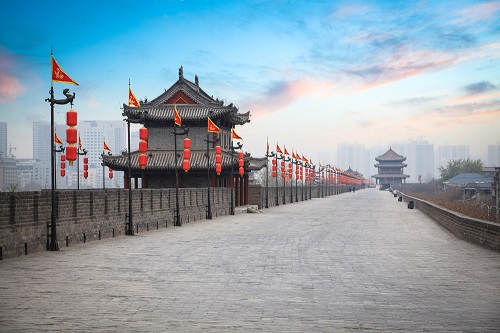Despite a decade or so of reforms to the system, healthcare in China is still often cited as “substandard” and largely “inconsistent”. Having said that, the system has seen plenty of progress, particularly throughout the rural regions of the country. It’s no secret that the standard of care differs greatly depending on where you are located, with the top quality hospitals being found within the main cities.Private hospitals and the VIP/international wards of public hospitals tend to offer a much better level of care than you might find in the public system. They also have the additional benefit of usually having English-speaking staff on hand to help. The majority of expatriates will therefore opt to pay privately for their care, or they may be covered for private treatment by their employer.
The Chinese healthcare system has its quirks. For example, it has been reported that it is quite common for patients in China to be responsible for keeping their own healthcare and medical records. Westerners may also view its faith in traditional medicine as a quirk. For much of China’s history, traditional Chinese medicine (TCM) was the only option in regards to healthcare. In some more rural areas, this remains the case, with local clinics only consisting of TCM practitioners, and GPs only operating from hospitals.
More about traditional Chinese medicine
Common therapies, practitioners, accessibility and public preference.
TCM is still deeply ingrained within the Chinese culture, and a large majority of the population still seek out a TCM practitioner for common ailments, before they attempt to see a doctor. This could be because of differences in availability and waiting times, as well as accessibility. Opting for TCM can also often be an inherited preference.
If you are located within one the more rural parts of China, you may find that conventional medical treatment is not available, unless you are willing to travel a long way. You may therefore opt for traditional Chinese medicine, simply because it is closer. However, many practitioners of TCM undergo some “western medical training,” in addition to their traditional training, so you may be able to discuss Western treatments with them if you would prefer.
TCM is essentially built on the pillars of natural health remedies, encompassing herbal treatments and tinctures, acupuncture and acupressure techniques, massages, and cupping therapy. The traditional approach is considered by many Chinese people to be effective not only in healing minor medical conditions, but in relieving the symptoms of some chronic illnesses as well.

Short staff, underfunding and illicit alternatives
Issues that arise as direct results of chronic understaffing and underfunding in the public healthcare sector.
There is a shortage of qualified doctors and nurses in China, with the most significant shortages found in rural areas of the country. Staff shortages, among other factors, mean longer waiting times for public healthcare. The waiting times can be so long that, in some extreme cases, queues for medical treatment can last for days.
This has led to illegal ticket touts outside of hospitals, who sell consultation waiting tickets for extortionate prices to those needing to see a doctor urgently. Whilst it is said that many city hospitals can offer a level of care comparable to that found in the West, the long waiting times often let the overall quality of the public healthcare system down.
Public healthcare plans in China often do not provide fully comprehensive cover, and this can lead to various problems. For example, on basic healthcare plans, transportation is not covered. In many major cities, there are not enough ambulances. This has created an illicit “black ambulance” trade, where illegal and/or privately run emergency transportation vehicles ferry people to hospitals at a very high price. These vehicles are often staffed by completely untrained individuals with little or no medical knowledge.
Urbanisation and consequent healthcare threats
Common health risks and issues associated with urbanisation and dense urban populations.
An increasing number of urban areas and dense urban populations has led to mounting health concerns. For example, the levels of air pollution in large Chinese cities pose substantial health risks, particularly in the long term, to those residents exposed to it.
If you suffer from a respiratory condition, you should do your research before you travel to China, and make sure you have the appropriate medical cover in place. If possible, stock up on any medication you need before you go. In saying this, you must check the regulations for bringing medication into China first.
Pandemics in China have always been a very real threat. Given the incredibly dense population in urban areas, contagious diseases can be transmitted easily and can spread like wildfire. Many medical institutions are thoroughly prepared for pandemics, and containment and quarantine procedures often take place very quickly.
Water pollution is another problem in China. Expats are advised to avoid tap water whenever possible, and to stick to drinking bottled or boiled water only. It is also highly advisable to rinse fruit and vegetables with boiled water.

Medicines, prescriptions and pharmacies
Medications, prescriptions, and the quality of pharmacies in China.
Pharmacies in China are marked by a green cross and can be found at every corner. Many major cities will have 24-hour pharmacies available, as well as larger scale, department-style pharmacies, which open during the day. Pharmacy staff in China are highly trained and knowledgeable, but you might struggle to find one that speaks English. Also, you will often find that many medications only have labels and ingredient lists in Chinese. Therefore, you may need to take a translator with you, who can help you to communicate with the pharmacist.
It is worth noting that Chinese pharmacies do not accept foreign prescriptions. You will therefore need to visit a GP in China. Usually, you will be able to visit one at a hospital, who will give you a prescription, so that you can then purchase the required medication onsite.

